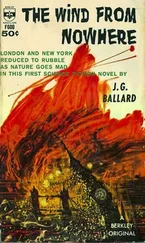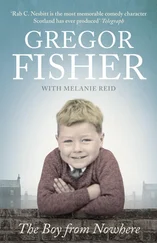Oates allowed to himself that his wife looked what she was, a Lipan Apache girl disguised as a respectable Victorian matron. But he wouldn’t have her any other way or, no matter how she might change in the future, love her more.
Night fell and the snow fell heavier. The north wind prowled around the house and set the doors to rattling on their hinges. Red and orange flames guttered in the fireplace, sizzling now and then as melted snow dropped down the chimney.
Someone knocked on the front door, waited a few moments, then knocked again.
“Who would be out on a night like this?” Oates asked, surprised, as he rose to his feet.
“Probably Stella.” Nantan smiled. “She thinks she has to bring food to the pregnant woman at all hours of the day and night.”
Oates padded to the door on his sock feet, then opened it a crack.
The door slammed into him with tremendous force, slamming Oates against the wall to his right. Mash Halleck, looking tall and terrifying in a bearskin coat and hat, went after Oates as he tried to rise. Halleck brought down the butt of his rifle on Oates’ head and before he passed out, he heard a woman’s voice yell, “Don’t kill him, you idiot! We need him.”
It was Darlene McWilliams’ voice.
A cold wind rushing through the door helped Oates come to his senses. He rose groggily to his feet and staggered into the parlor. He had not been unconscious for long, because the fire still burned as before and the lamps were as bright.
The only difference was that Nantan was gone.
Oates called his wife’s name several times, but there was no answer. Then he saw the knife that pinned a note to the table. He worked the knife free, took the note closer to a lamp and read.
If you want to see your wife again, do as you are told. We will be in touch. If you try to trick us, Clem Halleck will cut the baby from the squaw’s belly.
YOU KNOW DAMNED WELL HE WILL.
There was no signature, but Oates knew what had happened. Darlene McWilliams had Nantan.
Oates pulled on his boots, then buckled his gun belt. He quickly shrugged into his blanket coat and knotted the ties of the fur hat under his chin. He grabbed his rifle, and, with one last look at the parlor where the woman he loved had been only a few minutes before, he rushed out of the house and ran through the snow to the livery stable.
Oates rode across the bridge, following tracks that were being rapidly obliterated by the snow. He had not considered for one moment asking Rivette for help.
Nantan was his wife. The responsibility was his and his alone.
Chapter 38
Oates was not a tracker, but as near as he could judge, Darlene and her party had crossed the bridge, then headed north. But they would stay close, and probably swing west for the cover of the Gila.
After an hour of fruitless search, the snow stopped, the clouds cleared and the moon dappled the silent, shadowed land with a hard glitter.
Any tracks Darlene had left were buried under the snow. Maybe an Apache or an experienced army scout could have found the way, but Oates did not possess those skills.
His breath smoking in the cold air, he rode as far north as Cuchillo Negro Creek, then turned and headed south again, his eyes constantly searching the mountain foothills.
He neither saw nor heard anything.
After another half hour, Oates gave up. The bladed moonlight cast too many shadows among the arroyos and high ridges of the Gila where an army could hide and never be seen.
He rode into a shallow gulch thick with juniper and sage and swung out of the saddle. He loosened the cinch on the paint’s saddle and let the little horse graze, then found himself a hiding place among the trees.
Oates sat on something hard, reached under himself and threw it aside. It was a round, white rock. He looked closer and saw dark eye sockets and under those, long, yellow teeth grinned at him. A skull!
He sprang to his feet, spooked. All around him, scattered by coyotes, lay the bleached bones of a man. Two steps away was another, the bones of this one more intact. Scraps of cloth and leather still clung to the skeleton and in the stark moonlight Oates could make out the rusted remains of a revolver still clutched in the man’s bony hand.
It was too dark to see more. A man who had inherited his fair share of the Westerner ’s dread of folks long dead and their ha’ants, Oates grabbed the mustang’s reins and backed out of the arroyo.
Oates spent a sleepless night among some boulders on the lee side of a wedge of rock that protected him from the worst of the north wind. Curiosity driving him, at first light he took his Winchester and walked back to the dead men.
Were they victims of Darlene McWilliams? Maybe Circle-T punchers?
But when Oates saw the skeletons again, he realized these men had been dead for many years.
He found a second revolver close to the first skull he’d discovered, and something else—two round bullet holes in the man’s breastbone. He saw an obvious wound in the more intact skeleton, several of its ribs shattered by a heavy caliber ball.
No flesh remained on the dead men, but their story was writ plain enough in guns and bone. These two, whoever they were, had gotten into a gunfight in the arroyo and killed each other.
Both revolvers were old cap-and-ball models and the degree of rust suggested that they’d lain out in the elements for at least a decade.
Oates scouted around and after a few minutes discovered the reason why these men had died. Several burlap sacks, so rotted that coins had spilled out onto the ground, lay at the base of a juniper, half hidden under drifting sand and dirt.
He kneeled beside the tree, dragged the sack toward him, and counted the coins, then scrabbled under the juniper for the rest. When he finished he had a pile of one thousand and two double eagles, more than sixty pounds of gold.
Oates whistled between his teeth. That amounted to twenty thousand dollars, a fortune, enough to keep him and Nantan in style for years.
The gold fever fled Oates as quickly as it had come and despair took its place. Where was his wife and could he find her in this wilderness?
He would gladly part with the money to get her back. . . .
Sudden inspiration came to Oates and he nodded to himself. Lying at his feet was his bargaining chip. He no longer need depend on Stella. He’d give Darlene the five thousand, and, if need be, each and every one of the double eagles for the return of his wife. The avaricious woman would jump at that offer.
Oates returned with his horse and filled his saddlebags with the gold. When he stepped into the saddle, the paint resented the extra load and bucked his resentment. But when he was pointed in the direction of town, the mustang began to have visions of hay and a warm barn and settled down to a steady canter.
The morning offered little promise of warmer weather and the black sky was in complete agreement. Snow tumbled in the air and the air was chill and hard to breathe, like gulping down draughts of ice water.
Heartbreak lay under a pall of wood smoke as Oates trotted over the bridge and rode to the barn. At this hour there were few people about, the bitter cold and the tang of frying bacon keeping them indoors.
He stripped the paint’s rigging, rubbed him down with a sack, then forked him hay and a generous supply of oats.
That done, he shouldered the heavy saddlebags and walked to his home. He stashed the gold in the parlor, now cold and echoing emptiness, and was glad to seek the warmth and bustle of Hermann Schmidt’s restaurant.
A dozen miners sat at tables and most nodded when Oates entered. He took a seat and one of Hermann’s plump daughters wrote down his order, then poured him coffee.
Читать дальше












